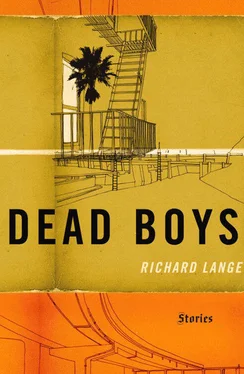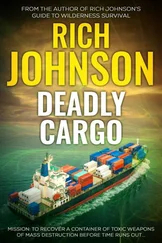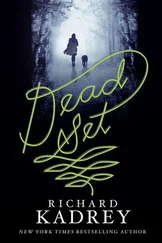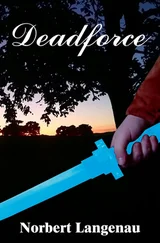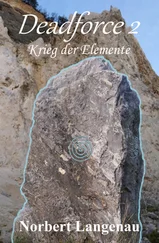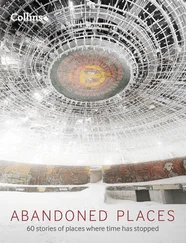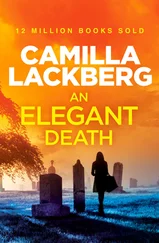I should keep going, return later just in case, but I can’t. My family is there, frightened probably, worried. I park down the block and head up the hill on foot. I’ll go easy if it comes to that. They won’t have to club me or twist my arms to get the cuffs on. If Sam saw that, it could scar him for life.
The cops tense up as I step into the courtyard. A few hands move toward guns.
“Papi,” Sam yells. He hobbles to me, dragging his cast, Maria right behind him. “A burglar was here,” he says. I reach down and pick him up.
“The Floreses surprised somebody breaking into their place,” Maria says. “He ran out the back when they came in the front.”
“Jesus,” I say.
The cops go back to their discussion, ignoring us.
Maria hugs me close and whispers in my ear, “I was so scared.” I apologize to her, tell her everything will be okay.
We’ll be like this for a while, tightening at the sight of police cars, losing hope every time there’s a knock at the door. But the years will pass, the fear will fade, Maria will stop wondering what other secrets I’m keeping, and someday I won’t even be the same man who took down those banks. It will be more like a crazy story I heard than something I lived.
Sam won’t let me put him down. He wants to be carried. I put my other arm around Maria, and we walk to the bungalow, step inside, and lock the door behind us. Safe — oh, please let us be safe — for at least another day.
SOMETHING HAD CHANGED. I SENSED IT AS SOON AS I walked into the doughnut shop. Nobody was playing chess, where always before there had been at least one game going on. All the guys just sat glumly at the little plastic tables, staring into their coffee or fiddling with empty sugar packets. And the radio was off. No Dodgers. In the middle of the season. Impossible.
I thought it might be me. I have this tendency. I’ll pick a bar, for example, and stop in for a drink every evening for six months, a year, know all the bartenders’ names, all the regulars, get slipped a free one now and then, feel right at home, but then one day, out of nowhere, it turns to shit. Same bar, same stool, same gin and tonic, but suddenly the mole on the face of my favorite waitress makes me sick, the Christmas lights framing the bottles are a terrible joke, and the ice cubes feel like broken glass in my mouth. I hurry out in what always seems like the nick of time, never to return. I’ve fled bowling alleys in the same cold sweat, restaurants, apartments I loved, too many jobs to count, an entire city. Denver — just the thought of that place makes me shudder.
So that’s what I assumed was going on when I saw those men I’d never known to be anything but cheerful fighting back tears and not even Cocaine Bill could muster a greeting. I stepped to the counter for a coffee, waiting for that inexplicable dread to grab me by the throat and once again force me out onto the street. It was no use even sitting. I stood in the corner, holding my cup in one hand, jingling the change in my pocket with the other.
But then Whitey roused himself with a heavy sigh, running his fingers and thumb over his big silver mustache. He glanced at me with bloodshot eyes before turning back to the window, on the other side of which cars raced up and down Sunset on missions of great importance.
“Bud passed away,” he said, letting me in on the reason for the pall. “Heart attack, apparently, yesterday afternoon.”
José crossed his tattooed arms on the table in front of him, bowed his head, and began to sob, while Bill, that miswired fuck, ran out the front door and attacked a parking meter, kicking and punching it until Ray Ray screamed at him to stop.
I got a refill on my coffee and settled in for a long night in my usual spot next to the video game. Yes, things had changed. But this time it was the world, not me. Was it selfish to feel relieved? I couldn’t decide.
BUD LEARNED TO dream in Vietnam. Before that, back on the ranch — Montana, Idaho, wherever it was he grew up — he’d turn to stone as soon as he hit the sack. His mind shut down till morning, when his father’s voice resurrected him, calling him to breakfast and days heavy with heat and dust and endless chores.
At first it scared him. He’d be sleeping in a bunker deep in the jungle, and his head would fill with yellow or red or green. He thought he was going crazy, like the private from Tulsa who came off a long night at a listening post on the perimeter and started in with “Pete and Repeat were sitting on a log. Pete fell off. Who was left?” and was still at it two days later when they choppered him out. But then Bud discovered that if he focused — squinted was how he put it — the colors coalesced and he’d find himself starring in the wildest movies.
It was a revelation. In the midst of all that desperation and fear, where even the birds made sounds like people dying, he could turn in and visit his mom or bang Raquel Welch or eat a steak that doubled in size every time he took a bite. At first he dreamed exclusively of home, but after a while crazier scenarios played themselves out. One night it was pirates, all pirates; the next he rode a bike through Rome, Italy, wearing nothing but skivvies and flip-flops.
When his tour was up, he returned to the ranch, but he could no longer stomach the early mornings. He wanted to sleep, to dream, till noon, then maybe nap again after lunch, which didn’t sit well with his father, who expected him to pull his weight as he had before. A friend from the army invited him to Buffalo, and the two of them boozed away a couple of good years, screwing hippie chicks and shoveling snow, until the friend started talking to God and decided to shack up with a waitress. Bud split for Florida then, but the humidity down there brought on his first nightmare. He was back in the jungle, carrying a severed hand that had little mouths that wouldn’t stop screaming on the tips of each finger. Fuck this shit, he decided, and set out for California.
It took him ten years to get here. On the way he married and divorced a couple of times, went to barber college, did time for burglary and aggravated assault, learned to weld, and lost the sight in one eye. L.A. was everything he’d hoped it would be, though. As soon as he hit town, he said, he put it in neutral.
When I met him at the doughnut shop, he was living off VA money in a garage apartment owned by a Filipino slumlord. He slept twelve hours a day and once a month took a five-dollar turnaround bus to Vegas to work on a keno system that was going to make him rich, something that had come to him in one of his dreams. He was full of shit and worse, but who among us wasn’t? I was rooting for him. We all were.
WHITEY MADE THE arrangements. Apparently he and Bud had discussed the inevitable a number of times and shared with each other their last wishes. That kind of foresight was astonishing to me.
I’d never been to a funeral before, but I’d seen them on TV, so I knew to wear a tie. Bill asked me to pick him up because his license had been suspended again. “I will be high,” he said, “but ignore it.” I did my best. The whole way there he played bongos on the dashboard and rocked back and forth in his seat. Every so often he’d unpin the fist-size rose he’d stuck to the lapel of his jacket and shove it under my nose and say, “Smell that. Pretty, huh?”
It was a big church, and new. The ceiling arched over us like an umbrella, and every little sound had an echo. I’d never known Bud to be religious. In fact, the only comment I’d ever heard him make on the subject, while gloating over a particularly profitable chess victory, was “The devil is in the details.” But I guess there were certain times when certain words had to be said, and where else outside of a courtroom were you going to get people to shut up long enough to listen?
Читать дальше
